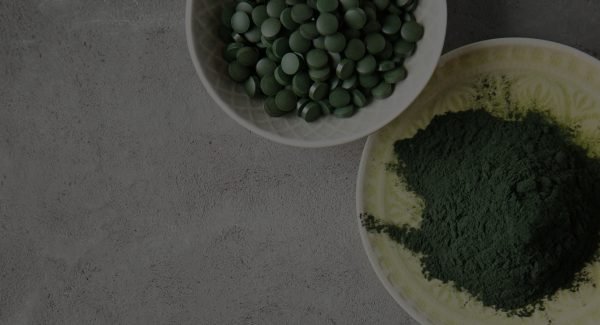What is Spirulina and Its Benefits?
Nutritional Profile
Spirulina is packed with an impressive array of nutrients. Just a small serving can provide:
- High Protein Content: Spirulina contains about 60-70% protein, making it one of the most protein-dense foods available. It includes all essential amino acids, making it a complete protein source.
- Vitamins and Minerals: Spirulina is rich in vitamins B1 (thiamine), B2 (riboflavin), B3 (niacin), copper, and iron. It also contains significant amounts of magnesium, potassium, and manganese.
- Antioxidants: Spirulina is loaded with antioxidants, including phycocyanin, which gives it its unique blue-green color. Antioxidants help combat oxidative stress in the body.
Health Benefits of Spirulina
Boosts Immune System: The rich nutrient profile of spirulina helps strengthen the immune system, making it more effective at fighting off infections and diseases.
Supports Weight Loss: Spirulina can aid in weight loss by promoting satiety. Its high protein content helps keep you feeling full for longer, reducing overall calorie intake.
Improves Gut Health: Spirulina acts as a prebiotic, promoting the growth of beneficial gut bacteria. A healthy gut microbiome is crucial for digestion, nutrient absorption, and overall health.
Enhances Muscle Strength and Endurance: Some studies suggest that spirulina supplementation can improve muscle strength and endurance, making it a popular choice among athletes.
Reduces Inflammation: The antioxidants in spirulina help reduce inflammation in the body, which is linked to various chronic diseases, including heart disease and diabetes.
Supports Heart Health: Spirulina may help lower bad cholesterol (LDL) and triglyceride levels while increasing good cholesterol (HDL), contributing to better heart health.
Detoxifies Heavy Metals: Some research indicates that spirulina can help detoxify the body from heavy metals and harmful substances, promoting overall health.
Regulates Blood Sugar Levels: Spirulina may improve blood sugar control and insulin sensitivity, making it beneficial for those managing diabetes.
How to Incorporate Spirulina into Your Diet
Adding spirulina to your diet is easy. Here are some suggestions:
- Smoothies: Blend spirulina powder into your favorite smoothie for a nutritious boost.
- Energy Bars: Incorporate spirulina into homemade energy bars or protein bites.
- Soups and Sauces: Stir spirulina powder into soups or sauces for added nutrition.
- Salads: Sprinkle spirulina flakes on salads for a nutritional upgrade.
Conclusion
Spirulina is a nutrient powerhouse that offers numerous health benefits. Whether you’re looking to boost your immune system, support weight loss, or enhance your athletic performance, spirulina is a versatile addition to a healthy diet. As with any supplement, it’s essential to consult with a healthcare provider before incorporating spirulina into your routine, especially if you have existing health conditions or are pregnant.
By embracing the power of spirulina, you can take a significant step toward achieving better health and well-being. Start exploring the benefits of this incredible superfood today!
High Protein Content:


